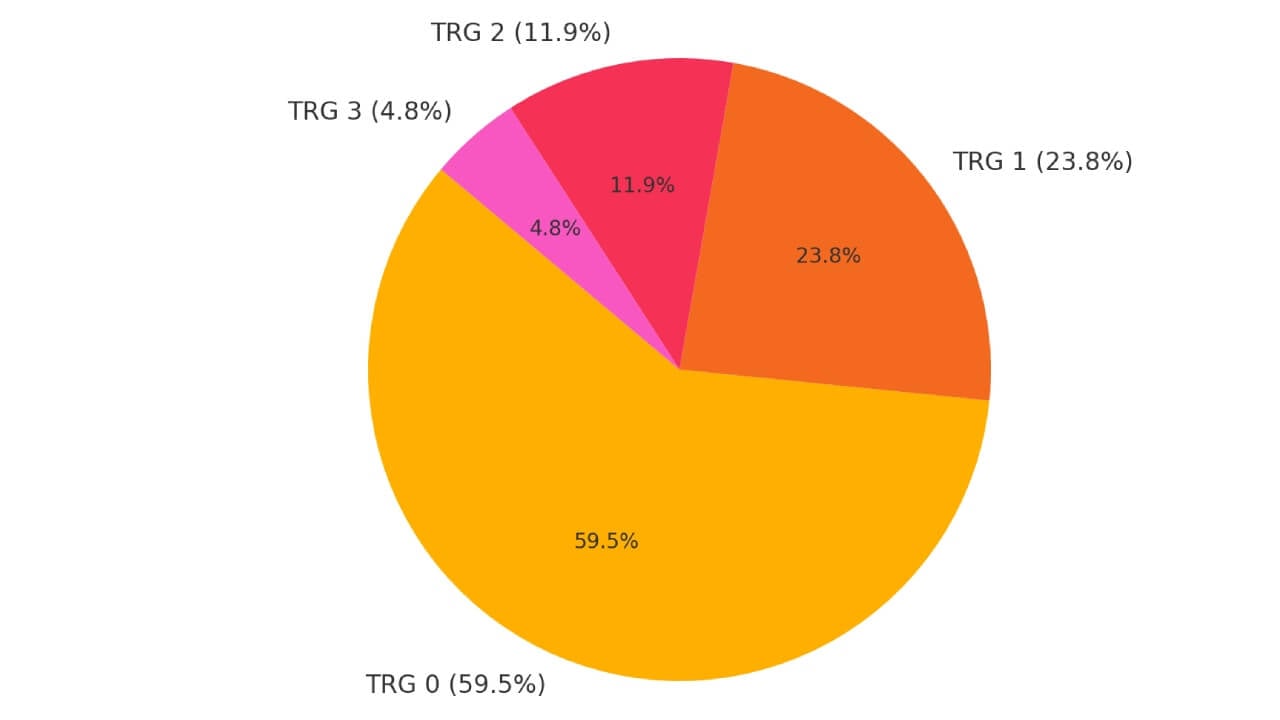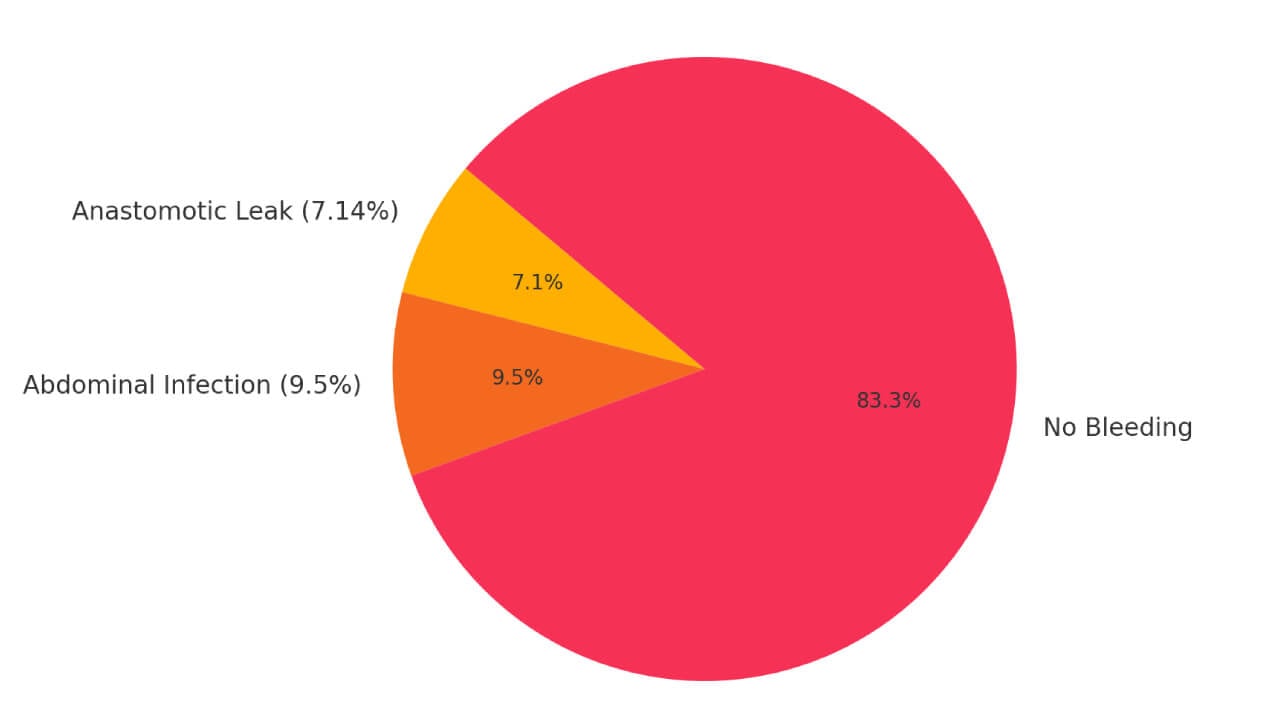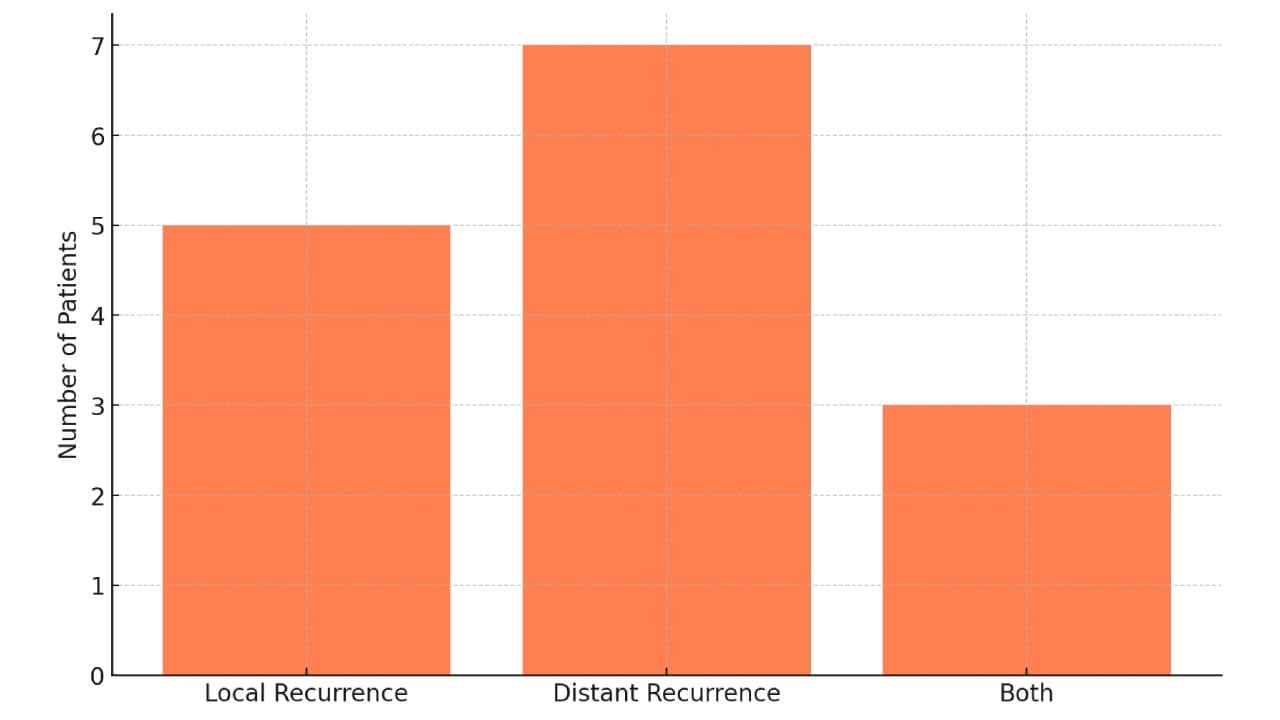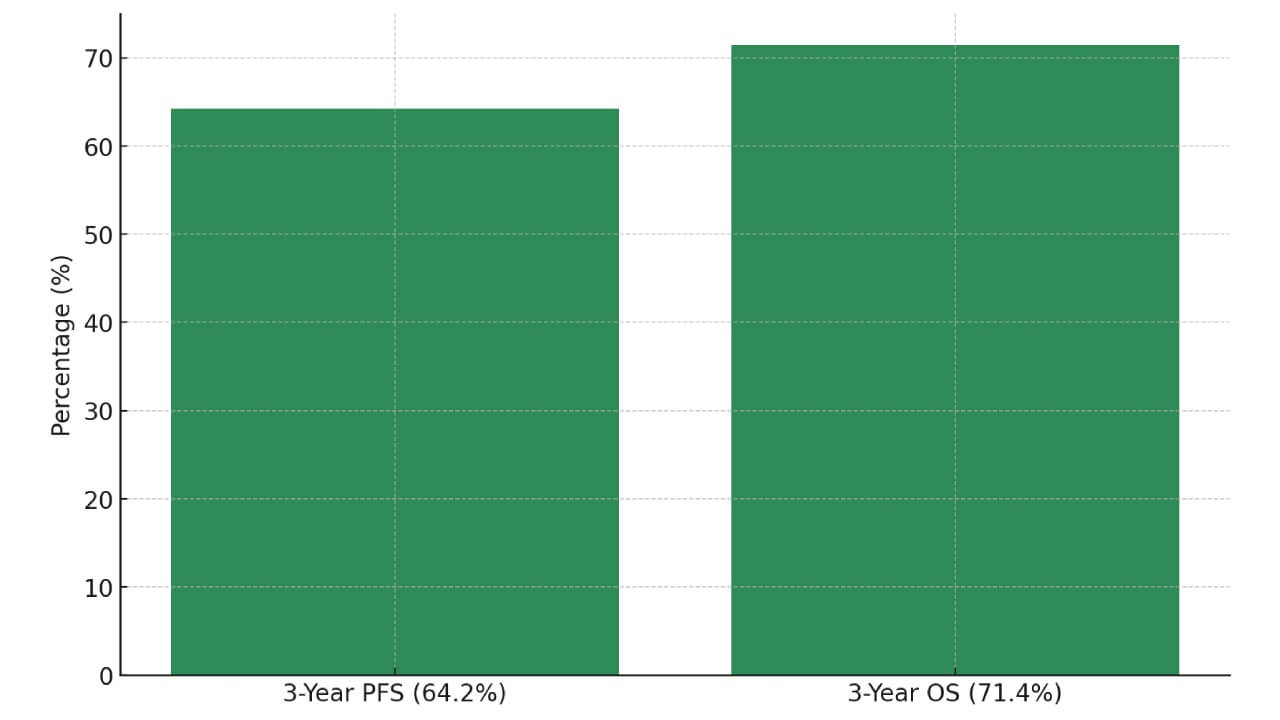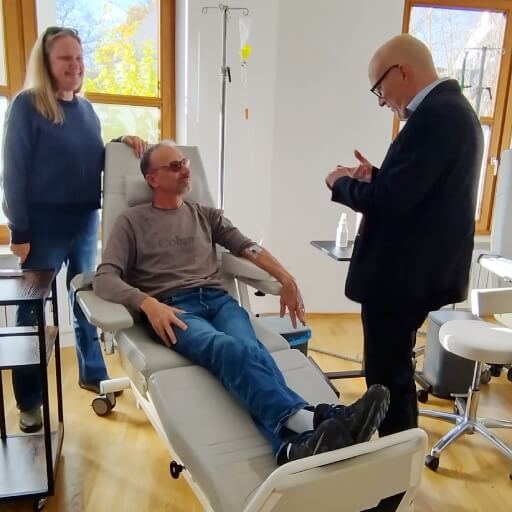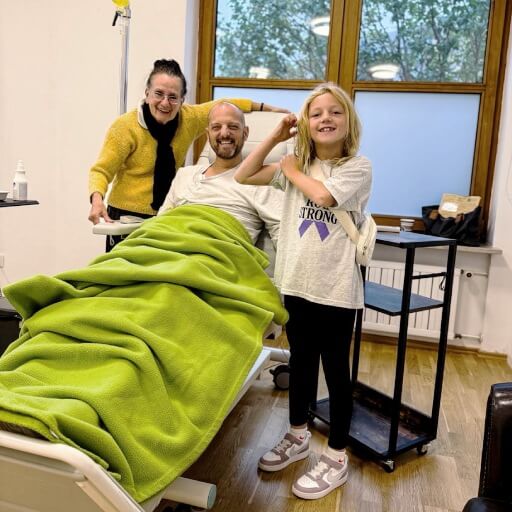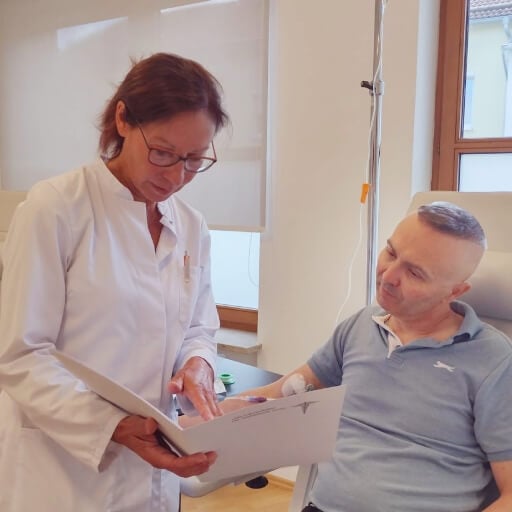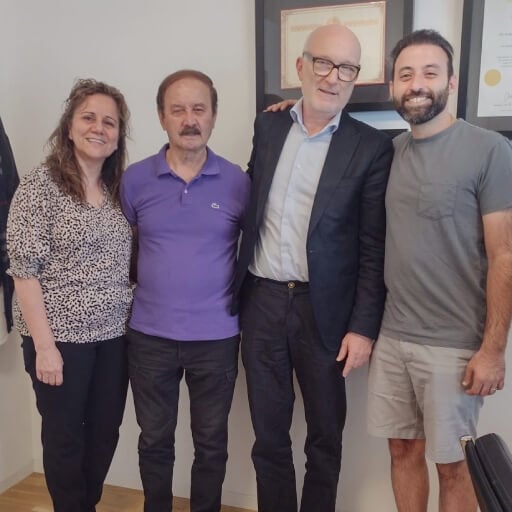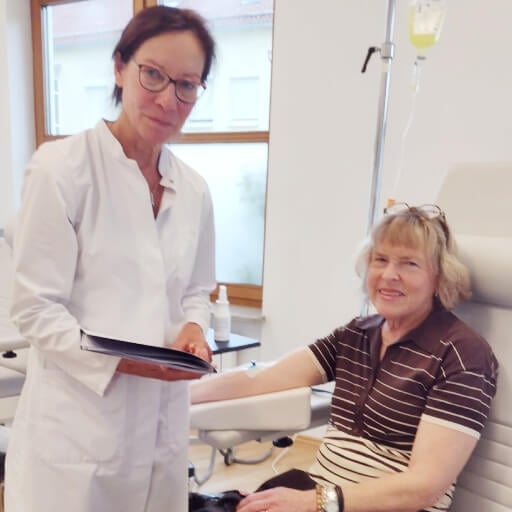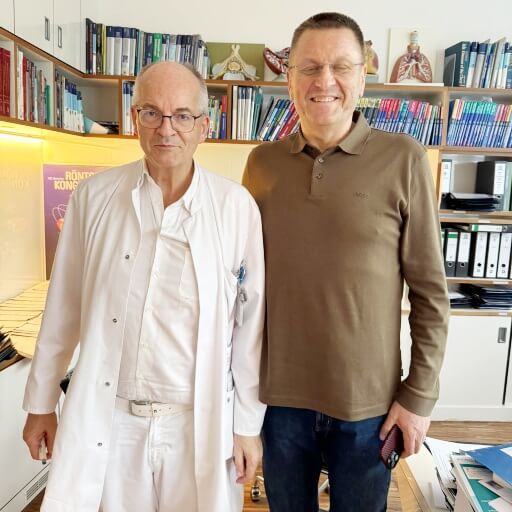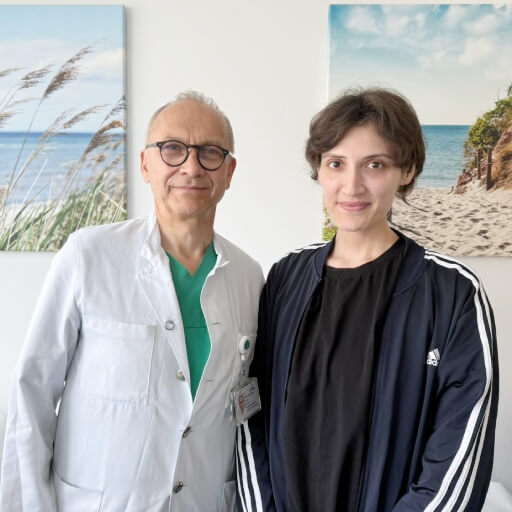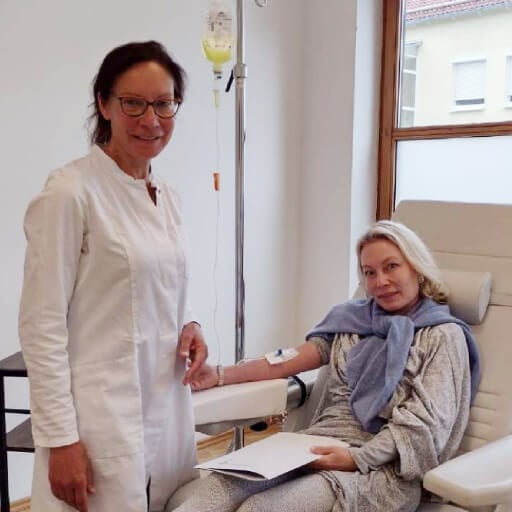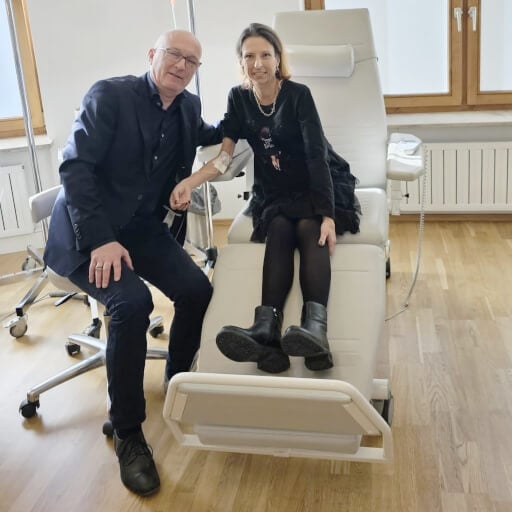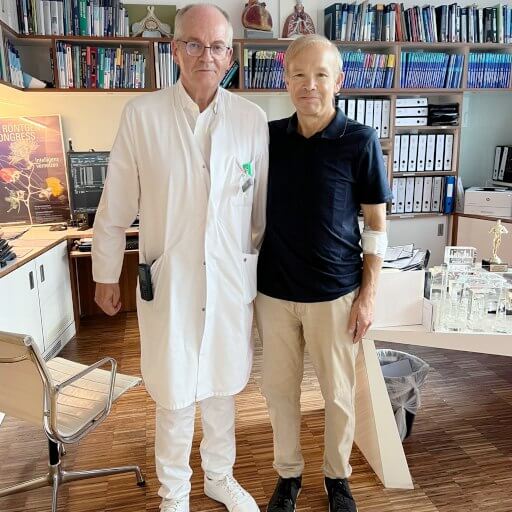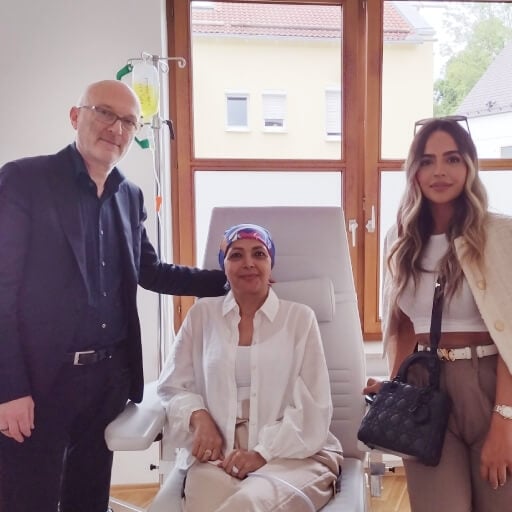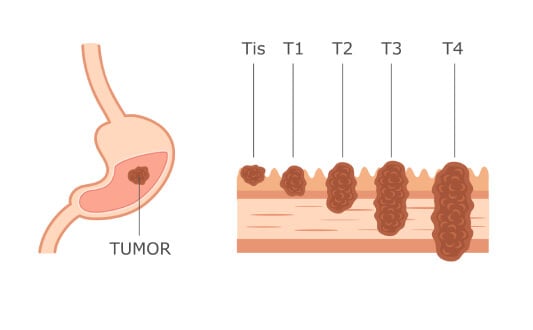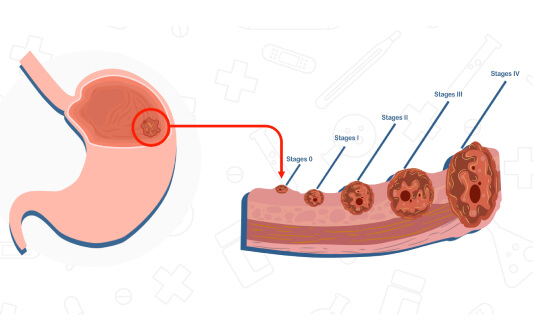Hearing the words "stomach cancer" can feel like the ground disappears beneath you. Fear, confusion, and a flood of questions - with no time to waste. What happens next? What are the treatment options? Is there hope for recovery? This guide is here to give you clarity in the chaos. We’ve gathered clear, reliable, and up-to-date information to walk you through each step - from diagnosis to treatment planning - so you can move forward with confidence and a sense of control.
Understanding Stomach Cancer: Key Facts and Current Challenges
Stomach cancer, or gastric cancer, arises from the inner lining of the stomach and progresses through several stages if left untreated. The vast majority of cases - over 90% - are adenocarcinomas, which develop from glandular cells responsible for producing stomach acid and digestive enzymes. While the overall incidence has declined in parts of Europe, stomach cancer remains a leading cause of cancer-related deaths globally, especially due to late-stage diagnosis.
The European Cancer Information System (ECIS) [1] states that over 130,000 new cases were diagnosed in Europe in 2022. Although the number of individuals who survive at the advanced stages is low, this suggests the necessity to detect the disease at an earlier stage and elaborate on more effective treatment plans.
How Stomach Cancer Develops
Gastric cancer often begins with chronic inflammation, most commonly caused by long-term infection with Helicobacter pylori (H. pylori)—a bacterium classified as a Group 1 carcinogen by NCCN guidelines [2]. Over time, this inflammation can lead to cellular changes known as intestinal metaplasia, which may progress to dysplasia and eventually invasive cancer.
Other contributing factors include genetic predispositions, a diet high in preserved or smoked foods, tobacco use, and certain inherited syndromes, such as hereditary diffuse gastric cancer (HDGC).
Classification and Staging of Stomach Cancer
Precise staging is the key to treatment planning. The TNM classification system is the standard way of evaluating tumor spread, which has been aligned with the guidelines of the European Society for Medical Oncology (ESMO) and the Union for International Cancer Control (UICC) [3] in Europe. It uses results of imaging (CT, PET-CT, endoscopic ultrasound) and, in case of necessity, diagnostic laparoscopy.
- Stage I: Tumor is in the inner layers of the stomach wall, without the involvement of lymph nodes. The prognosis is usually good, provided that they are treated early enough.
- Stage II: Further infiltration into the muscular layer or early lymph node metastasis. Frequently, multimodal treatment is needed.
- Stage III: Local and regional spread, which refers to invasion of numerous lymph nodes or surrounding structures. Surgery can be an option, although it usually comes after chemotherapy.
- Stage IV: Distant metastases (liver, peritoneum, lungs). At this point, the treatment is palliative and aims to manage the symptoms and prolong life.
Standard Treatment Options For Stomach Cancer
The decisions made on the treatment of gastric cancer largely depend on the stage of the tumor, the site, the histological type, the molecular features, and the general health condition of the patient. The ESMO Clinical Practice Guidelines (2022) [4] explain that a multidisciplinary approach is necessary to guarantee the optimal possible outcome that incorporates the contributions of oncology, surgery, radiology, pathology, and nutrition support.
Surgery For Stomach Cancer: The Cornerstone for Curative Intent
Surgical resection forms the best curative therapy for patients with localized or locally advanced tumors (stage I-III). The surgery for stomach cancer is determined by the location and size of the tumor:
- Subtotal (distal) gastrectomy: It is better used with tumors in the lower part of the stomach.
- Total gastrectomy: This is necessary in case of tumors of the proximal part, or when the cancer occupies extensive parts.
- D2 lymphadenectomy: Removal of lymph nodes around it is the norm in Europe, according to EAES and ESMO guidelines.
Minimally invasive surgery of the stomach (laparoscopic or robotic) is becoming more common, especially in the case of an early-stage disease, with no notable difference in oncologic outcomes and reduced recovery time.
Perioperative and Adjuvant Chemotherapy For Stomach Cancer
Perioperative chemotherapy is the most frequent treatment in patients with resectable stage II and III stomach cancer. It is prescribed in the European oncology guidelines, such as the European Society for Medical Oncology (ESMO). This is a combination of chemotherapy administered prior to surgery (neoadjuvant) to reduce the size of the tumor and subsequent chemotherapy (adjuvant) to lower the chance of recidivism.
Now desirable regimen in Europe is a combination of four drugs that have been found to be more successful than the older three-drug regimens. The rationale of this strategy lies in the solid evidence of large clinical trials that revealed an increased survival and complete tumor removal.
The treatment of gastric cancer is usually managed in various cycles before surgery and also after the recovery, and is very appropriate to treat those patients who are in good general health and are capable of undergoing a rigorous treatment regimen.
Targeted Therapy For Stomach Cancer: When It May Be Used
In some advanced stomach cancer cases, the tumors can also have certain molecular features that open up to targeted forms of treatment. Amplification or overexpression of a specific growth factor receptor, which is related to the growth of tumor cells, is one of the most clinically relevant markers.
In patients with tumors that are positive for this marker, it has been established that added to regular chemotherapy, a targeted agent can enhance the overall survival. This is currently a first-line treatment option in this kind of molecular subtype according to the European Society of Medical Oncology (ESMO) recommendations.
It is highly recommended that this biomarker be tested prior to administering the treatment for systemic gastric cancer in advanced disease because it is useful in determining the appropriate therapeutic strategy, and the patient is also assured of the best and personalized treatment they can get.
Innovative Therapies for Gastric Cancer
Over the past few years, there have been other treatment options for gastric cancer as compared to conventional ones. Several novel therapeutic options are currently employed in clinical practice throughout Europe as an effective way of treating metastatic, recurrent, and peritoneal forms of the disease. These approaches have already shown clinical effectiveness, high safety levels, and increasing prevalence in the world, providing patients with new opportunities when the old approaches might have become exhausted.
Dendritic Cell-Based Immunotherapy For Stomach Cancer: Immune Activation with Proven Scientific Foundation
Dendritic cell therapy is an approved form of active immunotherapy in the treatment of gastric cancer that assists the immunity to in identifying and targeting the cancerous cells. Dendritic cell therapy is a procedure based on isolating dendritic cells from the blood of the patient and, under controlled laboratory conditions, pulsing them with antigens associated with tumors. The antigens are digested and presented on the surface of the dendritic cells.
When ready, the antigen-loaded dendritic cells are returned to the patient, usually through a simple injection. They move to regional lymph nodes where they engage naive T-lymphocytes, thereby triggering a cytotoxic T-cell attack against tumor cells bearing the same antigens.
The scientific basis of this approach was created by Dr. Ralph Steinman, whose discovery of dendritic cells won him the 2011 Nobel Prize in Physiology or Medicine. His work has brought radical changes to modern medicine in the context of immune regulation and anti-cancer defense.
Dendritic cell therapy is already in use in certified European clinics in the case of gastric cancer, demonstrating:
- Enhanced tumor-specific immunity
- Late recurrence of surgical and systemic treatment
- Good tolerability and possibility to use in weakened patients
The approach is highly productive when it is applied as part of a holistic treatment regimen used to avoid the development of the disease.
To gain a deeper understanding of dendritic cell therapy, its mechanisms, and its clinical applications in gastric cancer, we invite you to watch an in-depth interview with Professor Frank Gansauge, a pioneer in the field. In this discussion, he explains how dendritic cells train the immune system to recognize and destroy cancer cells, shares insights from his extensive clinical experience, and highlights the future potential of this innovative immunotherapy.
Prof. Frank Gansauge: How Dendritic Cell Therapy is Transforming Modern Cancer Treatment
TACE (Transarterial Chemoembolization) For Stomach Cancer: Localized Control for Liver Metastases and Innovative Neoadjuvant Therapy
Transarterial chemoembolization (TACE) is an image-guided, minimally invasive method of administering localized chemotherapy to the liver metastases through a combination of arterial embolization and delivery of localized chemotherapy. The operation is done by injection of chemotherapy drugs selectively into the branches of the hepatic artery serving the tumor, and the embolic material is then injected to stop the flow of blood. These two mechanisms enable the chemotherapeutic agents to be in contact with the tumor for a long time and, at the same time, deprive the tumor of oxygen and nutrients.
TACE has shown great usefulness in gastric cancer that has metastatic spread in the liver. In contrast to systemic chemotherapy, TACE enables high local drug levels at low systemic exposure, which reduces toxicity and enhances tolerability even in patients with comorbidities and poor performance status.
In clinical practice in European oncology centers, TACE has shown:
- Reduction in the size of the tumor to an average of 70%, and local control of disease in up to 70% of cases
- Normal liver enzymes, which denote functional liver recovery
- Better overall survival, particularly when incorporated in multimodal treatment regimes, which may also involve systemic chemotherapy, immunotherapy, or ablation
Due to the positive safety profile and the quantifiable results, TACE has become one of the standard treatment methods in patients with unresectable liver metastases of gastric cancer. It is beneficial when the patient is not eligible to receive surgical resection or the patient needs to have a reduced tumor burden before systemic therapy.
The effectiveness of using TACE as a neoadjuvant therapy in gastric cancer is confirmed by a recent multicenter clinical study that was published in the Journal of Clinical Oncology (2023) [5]. Among 43 patients, 42 (97.7%) had a successful D2 resection after TACE. Postoperative pathological analysis showed tumor regression in most cases.
*Outcomes of transarterial chemoembolization in neoadjuvant therapy of patients with gastric cancer [5]
Based upon these results, TACE is currently being established as a standard therapy in the multidisciplinary therapy for gastric cancer, especially in patients with liver metastases or in those who need a reduction in the tumor burden before proceeding with systemic therapy.
HIPEC (Hyperthermic Intraperitoneal Chemotherapy) For Stomach Cancer: Strength in Surgical Precision
HIPEC is a modern and high-tech surgical procedure that is employed in the management of gastric cancer peritoneal invasion. Having removed tumor deposits that can be seen, using cytoreductive surgery, heated chemotherapy is placed into the abdominal cavity to destroy any microscopic disease left behind.
Results of clinical trials demonstrate:
- Overall survival is more than 20 months in properly selected patients
- Lower levels of peritoneal recurrence
- Positive long-term results
HIPEC is now a regularly used procedure in most European oncologic centers and part of a few national guidelines on the treatment of advanced gastric cancer with peritoneal metastasis.
PIPAC (Pressurized Intraperitoneal Aerosol Chemotherapy) For Stomach Cancer: Minimally Invasive, Maximally Effective
PIPAC achieves chemotherapy through pressurized aerosol delivery into the peritoneal cavity through laparoscopy. This increases tissue penetration and drug distribution.
It has shown:
- Have a response rate of more than 60 percent in patients with peritoneal metastases
- Even when patients had advanced, treatment-resistant disease, median overall survival was 12-15 months
- Outstanding tolerability, repeated treatment without admission
PIPAC is currently used in dozens of oncology hospitals throughout Europe in peritoneal carcinomatosis, including that of gastric origin.
Stomach Cancer Treatment Abroad
For a large number of patients with stomach cancer, going to foreign countries to get cancer treatment provides access to superior treatment modalities, multidisciplinary care, and knowledge that these patients lack in their own countries. Such a decision can be driven by the confluence of the medical needs and the wish to explore the most effective treatment options available.
Patients prefer international care in order to obtain access to novel treatments, including HIPEC, PIPAC, dendritic cell immunotherapy, and TACE一those measures that are becoming more and more common in international cancer guidelines.
International cancer centers are usually high-volume centers that have a team of professionals who specifically treat gastric cancer. They usually have shorter waiting times for diagnostic imaging, surgery, and new treatment options.
Countries that have established good medical facilities, experience in handling sophisticated cases of cancer, and have good environments to support international patients are Germany, South Korea, Japan, Israel, Turkey, Switzerland, and Austria.
Making a decision to receive treatment in a foreign country may provide a greater range of treatment options, second opinion opportunities, and an opportunity to obtain personal care in the highest-quality facilities. To a great number of patients with advanced, or treatment-resistant gastric cancer, it is not merely an alternative一it is the possibility of living longer and living better.
| Characteristic | Standard Methods | Innovative Methods |
|---|---|---|
| 2-Year Survival Rate | ~30% for advanced-stage cases | ~55-65% in selected patients receiving multimodal therapies |
| Response Rate | Approx. 15% | 50-70% (depending on method and tumor profile) |
| Treatment Duration | 6-8 cycles over 4-6 months | Typically 3-5 sessions (e.g., PIPAC, TACE, dendritic immunotherapy) |
| Adverse Effects | High (nausea, immunosuppression, fatigue, hair loss) | Generally mild (localized pain, low systemic toxicity) |
Based on clinical data from Booking Health.
Medical Procedures Costs for Stomach Cancer
| Treatment Method | GERMANY* | Great Britain | USA |
|---|---|---|---|
| Standard Treatment | €80,000 - €150,000 full course | €90,000 - €165,000 full course | €100,000 - €180,000 full course |
| Innovative Methods | €25,000 - €60,000 full course | €70,000 - €120,000 full course | €100,000 - €150,000 full course |
Based on pricing insights from Booking Health. Final treatment costs may vary depending on individual clinical factors, length of hospital stay, required post-treatment supervision, and additional services such as diagnostics, travel assistance, and accommodation logistics.
From Uncertainty to Action with Stomach Cancer: Dan’s Path with Booking Health
At the time when Dan Mitcalfe started to seek a way of treating stomach cancer overseas, he had to cope with the challenge of arranging medical services in a foreign country. This has brought him to the University Hospital Frankfurt am Main in Germany.
Dan tells us that Booking Health assisted in making the treatment program at the University Hospital Frankfurt am Main in Germany. The planning of care abroad is a daunting process, particularly when it has to work within a tight schedule, health records, and overseas laws. However, with the right guidance, Dan could have concentrated on what was most important一receive the treatment he required.
He attributes the professionalism and responsiveness of the Booking Health team: "I would like to compliment all staff members of the company, Brother Muhammad, and Sister Nour in particular, on the level of their professionalism and timeliness in all visa processes and their assistance."
His experience shows the need for a trusted partner in coordinating matters in the event of medical care abroad, as was the case with Dan. Booking Health made the process easy and hassle-free by taking care of the visa arrangements to maintaining constant communication.
A Medical Journey: Every Step of the Way With Booking Health
Finding the best treatment strategy for your clinical situation is a challenging task. Being already exhausted from multiple treatment sessions, having consulted numerous specialists, and having tried various therapeutic interventions, you may be lost in all the information given by the doctors. In such a situation, it is easy to choose a first-hand option or to follow standardized therapeutic protocols with a long list of adverse effects instead of selecting highly specialized innovative treatment options.
To make an informed choice and get a personalized cancer management plan, which will be tailored to your specific clinical situation, consult medical experts at Booking Health. Being at the forefront of offering the latest medical innovations for already 12 years, Booking Health possesses solid expertise in creating complex cancer management programs in each individual case. As a reputable company, Booking Health offers personalized cancer treatment plans with direct clinic booking and full support at every stage, from organizational processes to assistance during treatment. We provide:
- Assessment and analysis of medical reports
- Development of the medical care program
- Selection of a suitable treatment location
- Preparation of medical documents and forwarding to a suitable clinic
- Preparatory consultations with clinicians for the development of medical care programs
- Expert advice during the hospital stay
- Follow-up care after the patient returns to their native country after completing the medical care program
- Taking care of formalities as part of the preparation for the medical care program
- Coordination and organization of the patient's stay in a foreign country
- Assistance with visas and tickets
- A personal coordinator and interpreter with 24/7 support
- Transparent budgeting with no hidden costs
Health is an invaluable aspect of our lives. Delegating management of something so fragile yet precious should be done only to experts with proven experience and a reputation. Booking Health is a trustworthy partner who assists you on the way of pursuing stronger health and a better quality of life. Contact our medical consultant to learn more about the possibilities of personalized treatment with innovative methods for gastric cancer with leading specialists in this field.
International Cancer Care: Patient Stories with Booking Health
Frequently Asked Questions of Our Patients About Stomach Cancer Answered
Send request for treatmentThe treatment of stomach cancer should be the most effective based on its stage and the unique features of the patient's condition. The possible treatment includes surgery, chemotherapy, targeted therapy, or new approaches such as HIPEC, PIPAC, or dendritic cell-based immunotherapy. Individual care plans established in the major oncology facilities lead to the most favorable outcomes.
The cancer in the stomach is treatable, particularly when it is at the initial stages. Curative therapy tends to include surgical and chemotherapy or other measures. Advanced gastric cancer cases can also be treated with chemoembolization or dendritic cell immunotherapy.
The typical symptoms are pain in the abdomen, indigestion, weight loss, nausea, early satiety, and tiredness. In case the symptoms are persistent, to achieve effective treatment of cancer, it is important to be diagnosed at an early stage.
True, a number of patients prefer to undergo treatment outside their countries to receive more advanced treatments that are not easily accessible in their home countries. German clinics also provide new treatment options for stomach cancer that include dendritic cell therapy, chemoembolization.
Some cases of immunotherapy for gastric cancer with the use of dendritic cells are also promising. It may be used either independently or in conjunction with other treatments. It is a personalized method, which raises the immune response of the body and makes it more effective in killing cancer cells.
Major European hospitals are the ones that focus on the surgery of stomach cancer and overall care. The centers frequently combine new treatment methods such as HIPEC or PIPAC during or after surgery, and this gives international patients access to top-notch cancer care.
The survival rate is based on the stage at which it is diagnosed and the treatment used. Stomach cancer at its initial stages has a higher survival rate than at its advanced stages. Optimal results can be achieved even in metastatic cases by the use of innovative approaches like chemoembolization, PIPAC, and dendritic cell therapy.
Treatment for stomach cancer depends on the stage and may include surgery, chemotherapy, and targeted therapy. In particular, advanced cases can benefit from innovative methods (e.g., HIPEC, PIPAC, TACE, and dendritic cell immunotherapy), which improve outcomes and are available in leading European oncology centers.
The cost of stomach cancer treatment can vary widely. For example, in Germany, standard treatment costs €80,000-€150,000, while innovative methods (e.g., HIPEC or dendritic cell therapy) range from €25,000-€60,000. Prices are higher in the UK (€90,000-€165,000) and USA (€100,000-€180,000). In contrast, Australia offers limited access to these innovative treatments, and when available, costs may be 3-4 times higher than in Europe.
For advanced-stage stomach cancer, the 2-year survival rate is approximately 30% with standard treatments. However, it rises to 55-65% in patients receiving multimodal innovative therapies (e.g., HIPEC, PIPAC, or dendritic cell immunotherapy).
The response rate for stomach cancer treatment averages 15% with conventional methods, compared to 50-70% with innovative therapies customized to the tumor profile (including targeted or immunotherapeutic approaches).
Standard stomach cancer treatment involves 6-8 chemotherapy cycles over 4-6 months. In contrast, innovative procedures (e.g., TACE, PIPAC, or dendritic cell therapy) may require only 3-5 sessions.
Conventional treatments for stomach cancer often cause nausea, fatigue, immune suppression, and hair loss. On the other hand, innovative therapies (e.g., PIPAC, HIPEC, and TACE) are generally well tolerated. They can cause only mild, localized side effects with minimal systemic toxicity.
Choose treatment abroad and you will for sure get the best results!
Authors:
This article was edited by medical experts, board-certified doctors Dr. Nadezhda Ivanisova, and Dr. Bohdan Mykhalniuk. For the treatment of the conditions referred to in the article, you must consult a doctor; the information in the article is not intended for self-medication!
Our editorial policy, which details our commitment to accuracy and transparency, is available here. Click this link to review our policies.
Sources:
[1] ECIS - European Cancer Information System. Stomach cancer burden in EU-27. https://ecis.jrc.ec.europa.eu/sites/default/files/2023-12/Stomach_cancer_2022_en.pdf
[2] National Comprehensive Cancer Network. NCCN Gastric cancer guidelines. https://www.nccn.org/guidelines/guidelines-detail?category=1&id=1434
[3] Union for International Cancer Control (UICC). WCRF International releases a new report on stomach cancer. https://www.uicc.org/news/wcrf-international-releases-new-report-stomach-cancer
[4] European Society for Medical Oncology (ESMO). Gastric cancer: ESMO Clinical Practice Guideline for diagnosis, treatment and follow-up. https://www.esmo.org/guidelines/esmo-clinical-practice-guideline-gastric-cancer
[5] Journal of Clinical Oncology. Outcomes of transarterial chemoembolization in neoadjuvant therapy of patients with gastric cancer: A multicenter retrospective cohort study. https://ascopubs.org/doi/10.1200/JCO.2023.41.4_suppl.410
Read:
Article menu:
- Understanding Stomach Cancer: Key Facts and Current Challenges
- Standard Treatment Options For Stomach Cancer
- Innovative Therapies for Gastric Cancer
- Stomach Cancer Treatment Abroad
- From Uncertainty to Action with Stomach Cancer: Dan’s Path with Booking Health
- A Medical Journey: Every Step of the Way With Booking Health
- Frequently Asked Questions of Our Patients About Stomach Cancer Answered
Don't know where to start?
Contact Booking Health
